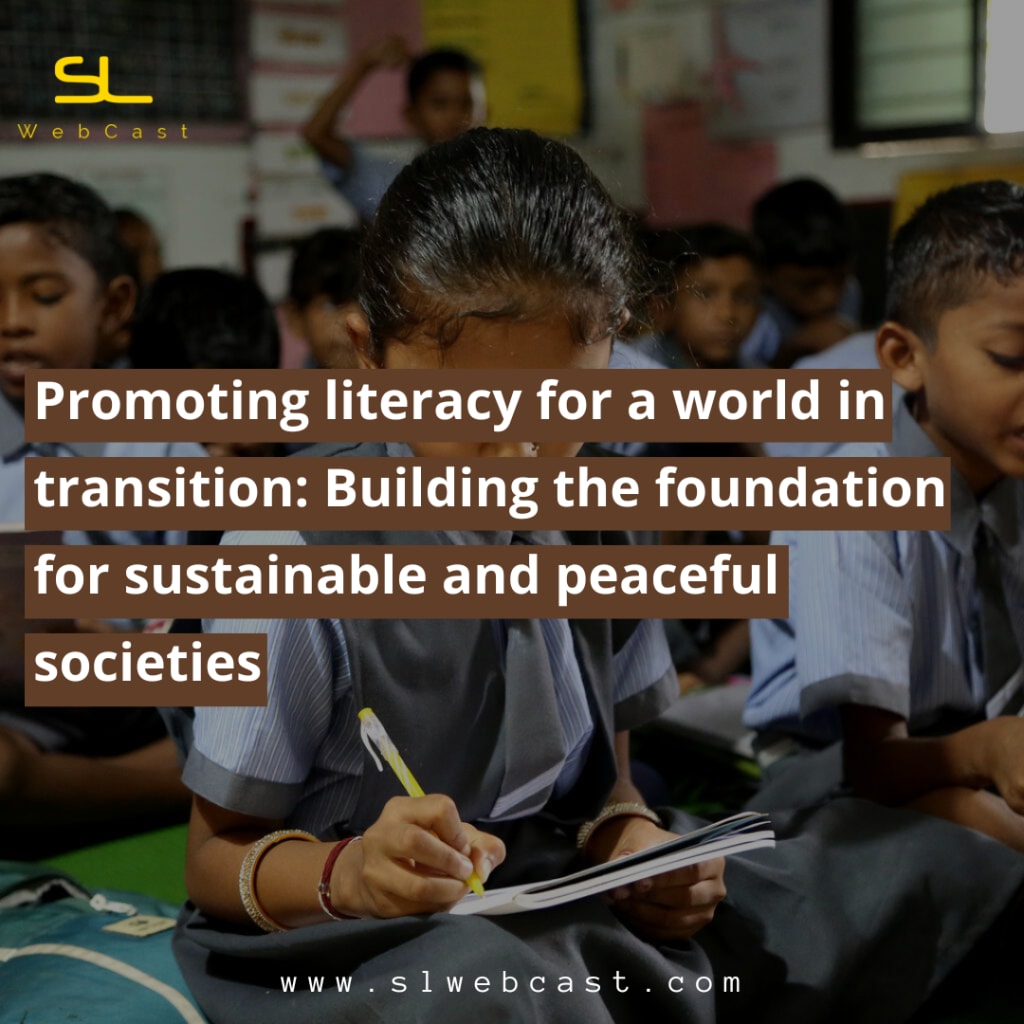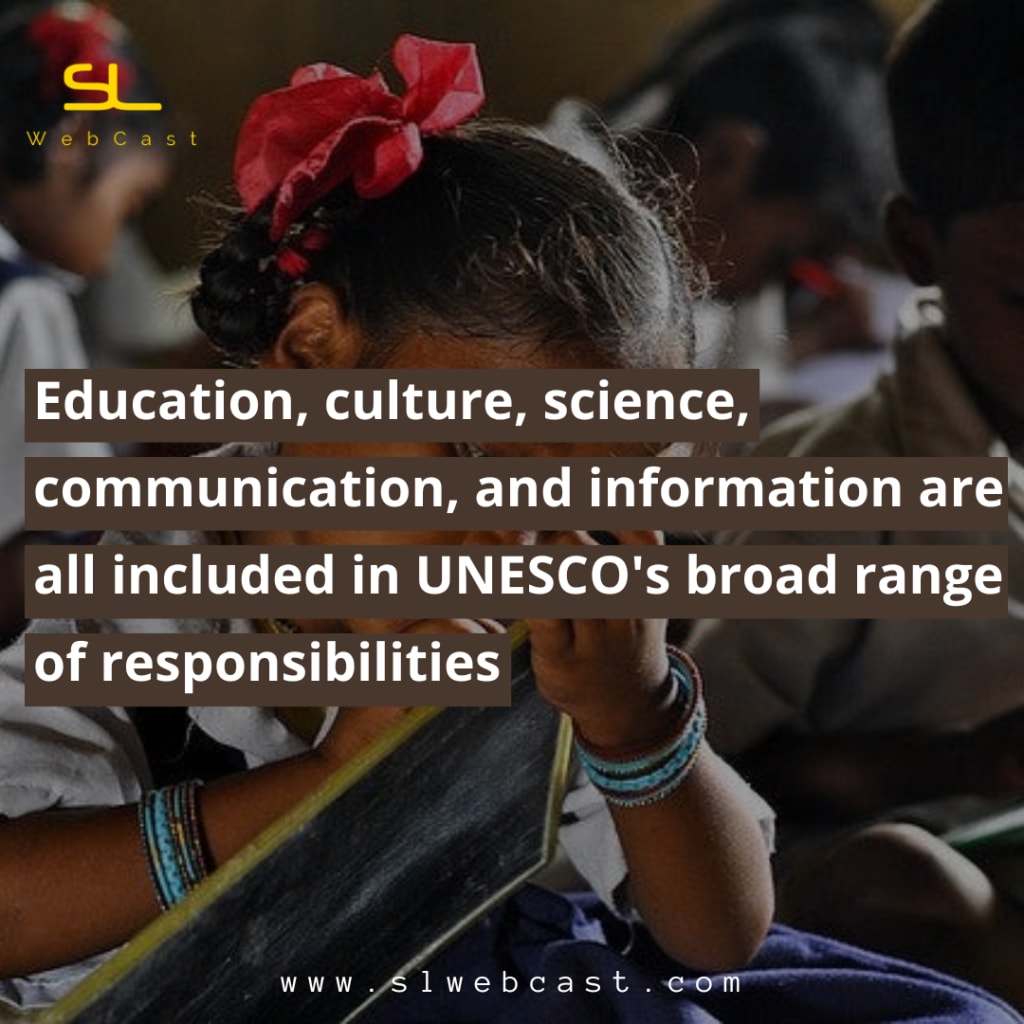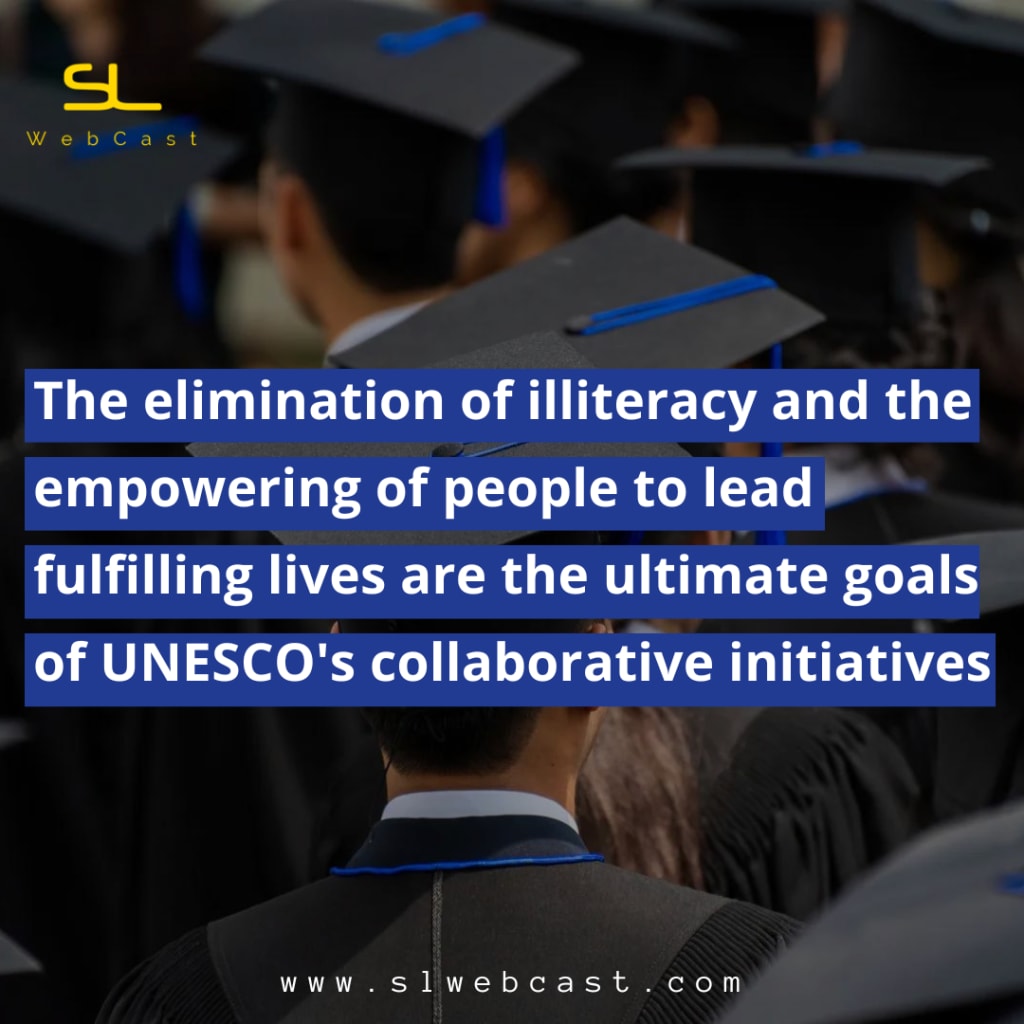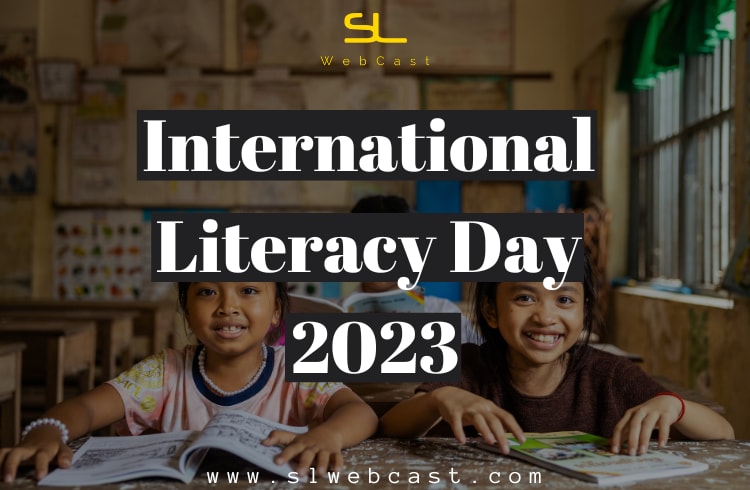It is impossible to overstate the value of literacy as a cornerstone of sustainable and peaceful societies in an era marked by rapid technological advancements, shifting socio-economic landscapes, and changing cultural dynamics. The world prepares to celebrate International Literacy Day (ILD), a day of profound significance, as September 8 draws near. This annual event, organized by UNESCO in collaboration with its Member States and cooperative partners under the theme “Promoting literacy for a world in transition: Building the foundation for sustainable and peaceful societies,” serves as a poignant reminder of the crucial role that literacy assumes in fostering human development, facilitating social progress, and fostering international cooperation.

Initiated by UNESCO in 1966, International Literacy Day promotes increased efforts to provide literacy education for all while highlighting the value of literacy for individuals, communities, and societies. Literacy is a fundamental skill that enables people to comprehend, evaluate, and communicate effectively in a variety of contexts. It is not just the ability to read and write. The ILD holiday serves as a reminder of the importance of addressing global literacy issues and disparities in order to give everyone the chance to develop functional literacy skills.
UNESCO, the United Nations Educational, Scientific, and Cultural Organization, is at the centre of efforts to advance literacy and education globally. UNESCO, which was founded in 1945, represents a profound dedication to advancing education, encouraging cultural interaction, and fostering scientific cooperation. UNESCO has a broad mandate that covers many aspects of human development, and it is crucial in establishing global agendas for a better future.
Education, culture, science, communication, and information are all included in UNESCO’s broad range of responsibilities. UNESCO’s vision for the world is one in which education is widely available, equally distributed, and transformative. By highlighting the value of literacy, UNESCO hopes to end the cycle of inequality and poverty, create new opportunities, and promote lifelong learning.

The strength of UNESCO’s influence lies in its capacity to establish alliances that cut across boundaries and industries. In order to increase the impact of its initiatives, UNESCO works with Member States, governmental organizations, non-governmental organizations (NGOs), and civil society organizations. This is done because it is recognized that the problems with illiteracy and education are not unique to any one area or community. By ensuring that resources are used effectively and knowledge is widely shared, this collective approach increases the efficacy of programs.
The role that UNESCO plays in literacy education is both strategic and useful. It creates and promotes programs that cater to the various needs of students in various contexts. These programs serve a variety of learners and their unique challenges, ranging from early childhood literacy programs to adult education initiatives. The quality of literacy education is improved by UNESCO’s efforts through the promotion of cutting-edge teaching methodologies, technology integration, and teacher preparation.
A fundamental component of human culture and heritage is linguistic diversity. The importance of preserving languages, especially those in danger of extinction, is acknowledged by UNESCO. Language shapes identity, values, and traditions in addition to serving as a tool for communication. By supporting programs that encourage multilingual education, UNESCO makes sure that students can develop literacy skills in their native tongues. This strategy not only strengthens the bonds between education and culture but also improves the quality of learning as a whole.
The idea of lifelong learning is critical in a time when knowledge is constantly changing. The dedication of UNESCO to lifelong learning goes beyond the conventional confines of formal education. It promotes the incorporation of learning into every facet of life, placing special emphasis on the value of informal and non-formal education. With this strategy, people are better equipped to adjust to shifting circumstances, pick up new skills, and continue to invest in their own and their careers’ personal and professional growth.
International Literacy Day is a potent illustration of how UNESCO works together. UNESCO builds a platform that amplifies the global conversation on literacy by collaborating with Member States, governmental organizations, NGOs, and civil society. Through this celebration, countries come together to exchange best practices, celebrate achievements, and address enduring problems. This spirit of cooperation stands for the nations’ shared resolve to end illiteracy and build a more just and educated global community.
The elimination of illiteracy and the empowering of people to lead fulfilling lives are the ultimate goals of UNESCO’s collaborative initiatives. Literacy is a tool for critical thinking, well-informed decision-making, and active citizenship, not just a way to acquire information. By giving people literacy skills, UNESCO helps people grow into people who can make meaningful contributions to their communities and society as a whole.

The theme for the 2023 International Literacy Day, “Promoting literacy for a world in transition: Building the foundation for sustainable and peaceful societies,” is a powerful reflection of the fluidity of our world today. Rapid technological advancement, shifting economic conditions, and altering cultural paradigms are all signs of the profound changes taking place in the world. This theme acknowledges the fundamental role that literacy plays in a person’s ability to adapt, thrive, and contribute in the face of these changes.
Literacy plays a key role in the overall Sustainable Development Goals (SDGs) of the United Nations, especially in Goal 4: Quality Education and Goal 16: Peace, Justice, and Strong Institutions. As societies work toward sustainable growth, literacy becomes a crucial tool for boosting the economy, fostering social inclusion, and empowering disadvantaged groups. People who are literate are better able to access information, make informed decisions, and actively engage in political and civic processes. Literacy essentially serves as a catalyst for eradicating poverty, promoting gender equality, and enhancing general well-being.
Now more than ever, in a world where technology permeates every aspect of life, it is crucial to be digitally literate. It is now crucial to be able to navigate the digital world, assess online content critically, and employ digital tools effectively for both personal and professional development. The promotion of digital literacy is crucial as the boundaries between the physical and digital worlds become more and more blurred in order to make sure that no one is left behind in the wave of technological revolution. The theme for International Literacy Day in 2023 emphasizes how important it is to give people the knowledge and abilities necessary to engage in productive and responsible digital interactions.
In light of the ongoing global changes, the chosen theme also honours the invaluable value of cultural and linguistic diversity. Languages represent cultural heritage and identity and are more than just tools for communication. By encouraging literacy in all languages, we protect cultural traditions and make sure that barriers due to language do not prevent people from accessing education. ILD highlights the diversity and richness that different languages add to the world’s knowledge mosaic through this celebration of linguistic diversity.
Fostering peaceful societies is aided by literacy promotion. People who have more education are better able to appreciate different points of view, negotiate differences, and reject extremist ideologies. People who have received an education are better equipped to analyze information critically, think for themselves, and confront biases. International Literacy Day advances peace and harmony by promoting literacy and laying the groundwork for societies based on tolerance, empathy, and cooperative coexistence.

International Literacy Day is a rallying cry for governments, civil society groups, educational institutions, and everyday people to work together to address literacy disparities. Governments are essential in developing policies that place a high priority on literacy education, allocating resources, and ensuring that all people have equal access to educational opportunities. The implementation of grassroots initiatives, awareness-building campaigns, and support for the right of marginalized communities to receive top-notch education are all contributions made concurrently by civil society organizations.
The importance of celebrating International Literacy Day grows as September 8, 2023, draws near. The theme, “Promoting literacy for a world in transition: Building the foundation for sustainable and peaceful societies,” perfectly captures how the world is changing and how important literacy is for navigating these changes. The unwavering commitment of UNESCO, working in partnership with Member States and partners, highlights a shared desire to eradicate illiteracy and foster a society in which every person can fully engage in economic, social, and cultural life. The celebration of International Literacy Day serves as a reminder that literacy is more than just a skill; it is a transformative force that shapes the present and paves the way for a more inclusive and bright future.


